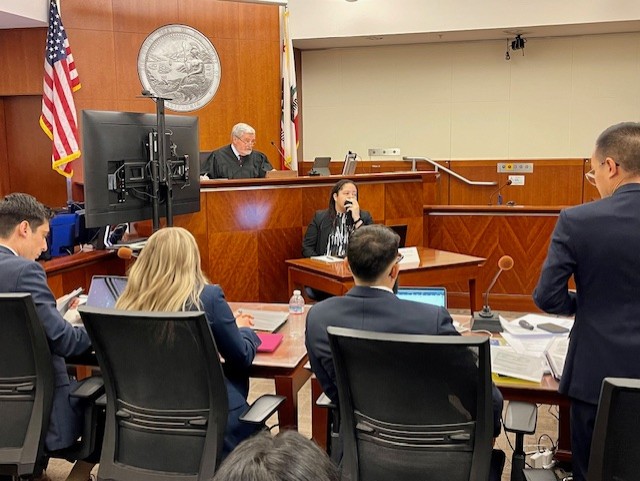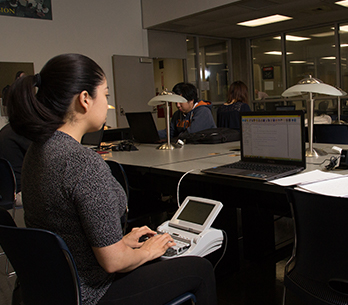How court reporting Balances Accuracy and Discretion in Legal Settings
How court reporting Balances Accuracy and Discretion in Legal Settings
Blog Article
Comprehending the Necessary Function of Court Reporting in Legal Process
Court coverage is commonly forgotten, yet it's essential in lawful process. Let's check out the basic functions of court reporting and its significance in the legal landscape.
The History of Court Reporting
Court reporting has a rich history that goes back to ancient worlds, where scribes utilized different techniques to catch spoken words. The earliest kinds of shorthand arised in Greece around 400 BC, enabling philosophers and political leaders to tape speeches rapidly. As you move through history, you'll discover that the Romans took on comparable strategies, improving them to record lawful proceedings. By the 16th century, modern shorthand systems began to take form, enabling stenotype reporter to create precise records successfully.
In the 19th century, the invention of the typewriter changed the occupation, making it easier to create legible documents. The introduction of steno makers in the 20th century better progressed court reporting, enabling real-time transcription during tests. Today, stenotype reporter play a significant role in legal process, making certain that every word talked in the court room is properly recorded. Understanding this history highlights the value of court reporting in keeping a reasonable lawful system.
The Skills Needed for Court Reporters
As a stenotype reporter, you need solid inputting skills to stay on top of the fast-paced discussion of legal proceedings. Your capacity to listen attentively is just as necessary, ensuring every word is caught properly. Grasping these abilities is key to providing precise and trusted records.
Skilled Typing Abilities

Solid Paying Attention Abilities
Strong listening skills are essential for court reporters, as they must properly record talked words in genuine time. You require to concentrate intently on the dialogue, grabbing subtleties, tone, and context to ensure every information is videotaped correctly. This ability helps you distinguish in between speakers, recognize lawful jargon, and comply with complex conversations. It's not practically hearing words; it has to do with understanding and translating them promptly. You'll commonly face different accents and speech patterns, so flexibility is necessary. Exercising active paying attention methods can enhance your capacities; as an example, summarizing what you have actually listened to after conversations can enhance your skills. Ultimately, solid paying attention abilities make you a vital property in lawful process, making certain clarity and precision in the court record.
The Modern Technology Behind Court Reporting
In the domain of legal proceedings, modern technology plays a crucial function in boosting the accuracy and performance of court reporting. You're most likely accustomed to the standard stenotype machine, however modern court press reporters now make use of sophisticated software that incorporates with these machines, enabling real-time transcription. This means you can have instant access to the records as the proceedings unravel.
Digital audio recording is an additional technical advancement that's getting grip. It catches every talked word, assuring nothing is missed. Some reporters utilize voice acknowledgment software program, which can help improve the transcription procedure, though it still calls for human oversight for precision.
In addition, cloud-based storage space allows simple accessibility and sharing of transcripts, enhancing collaboration among legal teams. By leveraging these innovations, court press reporters can give top notch, timely records that are crucial for the lawful procedure. Welcoming this technology not just improves your understanding yet also ensures dependability in legal paperwork.
The Court Reporting Process

As lawful proceedings unfold, the court reporting procedure comes to be essential in recording every information accurately. You'll find that a stenotype reporter plays an important duty by recording spoken words into created text in real-time. When you enter the court room, the press reporter is already prepared, outfitted with specialized tools like stenographic machines and audio recording gadgets.
During the process, the press reporter listens attentively, inputting out everything claimed, from witness testaments to lawyers' disagreements. You might discover them stopping sometimes to assure clarity or to request for a repeat if something wasn't clear. After the session, the press reporter reviews the transcript, making necessary edits for readability.
This entire procedure not only ensures a thorough record but likewise prepares you for future reference throughout charms or instance reviews. In the busy environment of a court, the court reporting process is essential for keeping an accurate account of events.
The Importance of Precision in Records
While a stenotype reporter's key responsibility is to record spoken words, the accuracy of these transcripts is important for the integrity of legal procedures. When great site you're associated with a situation, you count on precise documentation to understand the events and disagreements provided. Any type of errors in transcription can cause misunderstandings, misinterpretations, or even wrongful judgments.
Accurate transcripts ensure that every information is caught, supplying a reliable document for judges, attorneys, and courts. This level of information is necessary throughout allures or when referencing past statements. If a records has errors, it can weaken the entire legal procedure, possibly affecting results.
Additionally, precise transcripts copyright the legal rights of all parties entailed, advertising fairness and transparency. Whether you're a legal representative preparing for trial or a witness reflecting on your testament, you can trust that the court press reporter's skill in accuracy plays a substantial function in your situation's success.
The Duty of Court Reporters in Different Lawful Settings
Stenotype reporter play an important duty in different lawful setups, from trials to depositions and lawful hearings. You'll discover that their job guarantees every talked word is precisely recorded, which is essential for the lawful process. Recognizing just how their duties differ throughout these environments can highlight their influence on the justice system.
Court Reporters in Trials
In any kind of legal test, you'll discover that court reporters play an important function in capturing the proceedings with precision and accuracy. They transcribe everything talked in the court, making certain that every word is documented for future recommendation. This document ends up being essential for allures, enabling higher courts to examine the trial's honesty. Court press reporters must preserve focus and rate, typically making use of specialized tools to stay up to date with busy discussion. Their work sustains legal representatives, judges, and juries by offering a main account of testaments and debates. If disparities emerge, the transcript works as a trustworthy resource to clarify what was claimed. Inevitably, stenotype reporter aid support the justice system, guaranteeing transparency and responsibility throughout trials.
Depositions and Lawful Hearings
Beyond tests, stenotype reporter likewise play a crucial function in depositions and legal hearings. Throughout these process, they capture every talked word, guaranteeing an accurate document of testimonies and discussions. You'll find that this accuracy is essential, as depositions usually serve as a structure for later disagreements in court. Stenotype reporter give real-time transcription solutions, permitting attorneys to follow along and resolve any concerns instantly. Their work enhances the effectiveness of lawful hearings, making it less complicated for all parties to refer back to the official record. In addition, the transcripts they produce can be substantial for appeals and various other legal processes - court reporting. Basically, stenotype great site reporter are essential in keeping the integrity and clearness of the legal record in depositions and hearings.
Future Fads in Court Reporting
As modern technology continues to develop, the future of court coverage guarantees to be formed by innovative tools and methods that improve precision and performance. You'll likely see raised use of man-made knowledge and real-time transcription services, enhancing the reporting process. These advancements can aid you accessibility records much faster, which can be important for your legal approaches.
Additionally, integrating video conferencing and remote reporting will become extra usual, allowing you to get in touch with stenotype reporter from anywhere (court reporting). This versatility can make depositions and hearings a lot more available, saving both time and resources
You'll also notice a focus on digital recordkeeping, which simplifies the storage space and retrieval of records. With cloud-based options, you'll have the capability to share papers safely and team up with your lawful group in real-time.
Often Asked Questions
What Is the Ordinary Wage of a Stenotype Reporter?
The typical salary of a stenotype reporter differs by location and experience, but you can anticipate it to vary from around $50,000 to $80,000 every year. Numerous elements affect this revenue, consisting of field of expertise and need.
Exactly how Do I Come To Be a Licensed Court Reporter?
To become a licensed stenotype reporter, you'll require to visit this site complete a court reporting program, pass an accreditation exam, and gain sensible experience. It's important to remain upgraded on industry criteria and continuing education and learning requirements.
What Sorts of Cases Do Court Reporters Cover?
Court press reporters cover various instances, including criminal tests, civil suits, depositions, and arbitration hearings. You'll locate them documenting everything, making certain precise records for courts, lawyers, and parties included, recording every word spoken in legal settings.
Are Court Reporters Required to Have a Degree?
Yes, court press reporters commonly need a degree or qualification in court reporting. Lots of programs supply specialized training, ensuring you obtain the skills essential for precise transcription and lawful paperwork in numerous settings.
Can Court Reporters Job Remotely?

Report this page